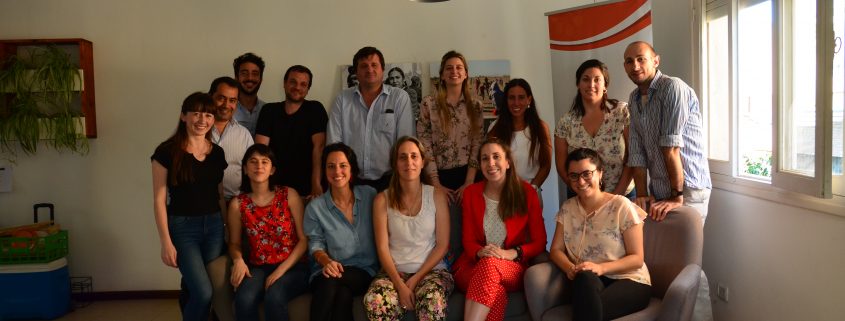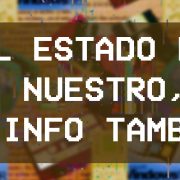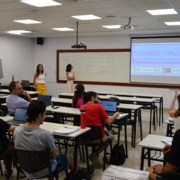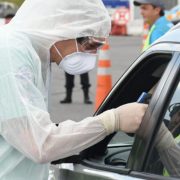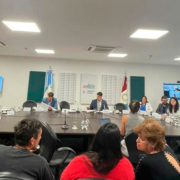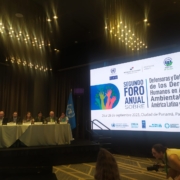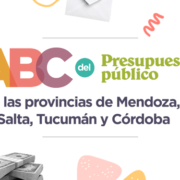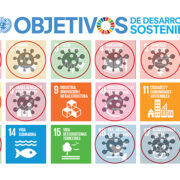Journalists and NGOs meet to talk about transparency and access to information
On November 28 and 29, the 2nd annual meeting of the Network of Organizations Against Corruption (ROCC) was held in the city of Córdoba. In this context, a meeting was held with journalists to talk about corruption and access to information.
The central theme that summoned us was the request to update the law on access to public information in Córdoba, supported by ROCC and other NGOs in Córdoba. During the meeting, the status of this right was discussed at the level of the provinces and at the national level, and the differences between the existence of a regulation and its application. Journalists and NGOs concluded in the need for a collaborative work together to be able to work on access to public information.
What is the situation in Córdoba?
The conclusions of the meeting show the need, in most cases, to have to prosecute requests for access to public information in Cördoba, and to have to wait for judicial times.
Córdoba, not only needs to update its law on access to information, but also the regulations that exist are far from being correctly applied. Fundeps only received 5% responses to requests for information submitted in 2019 to the municipality and the province; and when he prosecuted a case, the TSJ resolved it 10 years later.
And in the other provinces?
From the organizations of Mendoza, CLADH (Latin American Center for Human Rights) and Our Mendoza, it was highlighted that there were clear advances in relation to access to public information in their province, especially legislative ones. Since 2018 they have a new AIP law and in 2019 it was regulated. It contemplates issues of active transparency and even an office dedicated to its implementation, the Office of Administrative Research and Public Ethics. However, they warn that this does not work properly and that a system of comptroller, interprovincial for example, would be useful for the purpose of this being accountable to a third party.
On the other hand, both Salta and Santa Fe, Salta Transparente and Acción Acción, respectively, announced that their legislative situation is the most worrying. Salta does not have a law on access to public information at the provincial level, but at the municipal level of the city of Salta with an ordinance that includes, among other issues, active transparency and sanctions in the case of non-compliance with it. For its part in Santa Fe, the next will try for the ninth time to enter the law to the Legislature the bill on access to public information.
The Civil Association for Equality and Justice (ACIJ) of the autonomous city of Buenos Aires, said it is preparing a report on the applicability of the national AIP law, which will be published at the beginning of the year 2020.
How did the ROCC event continue?
At the meeting, other civil society organizations in Córdoba were invited to present their projects on Open Government. Virginia Romanutti of the Our Cordoba Citizen Network attended, who presented her work in the framework of the Goals Plan of the Municipality of Córdoba. Also attended by representatives of PARES working around three strategic axes: gender, citizenship and development; and Minka who is dedicated to issues related to law and technology.
In relation to the Network of Organizations Against Corruption, a balance of the activities of 2019 was made, highlighting:
- The note that was presented on January 25 to the president of the nation in relation to the decree of necessity and urgency (DNU) issued on the Procedural Regime of Civil Action for Extinction of Domain.
- Contribution of comments to the presentation of the Draft Open State Law in Salta.
- Active participation in the Federal Council for Transparency.
- The Social Anti-Corruption Agreement.
And, some actions were proposed to carry out next year as:
- Participate in the Federal Council for Transparency.
- Conduct awareness campaigns on the importance of the right of access to public information.
- Supervise infrastructure works at the national level as they become one of the most important niches of corruption.
- I work to regularize the lobby.
- Consolidate a work plan on misuse of public resources.
- Require a law on public ethics in provinces or municipalities that do not own one.
Contact
Nina Sibilla, ninasibilla@fundeps.org

